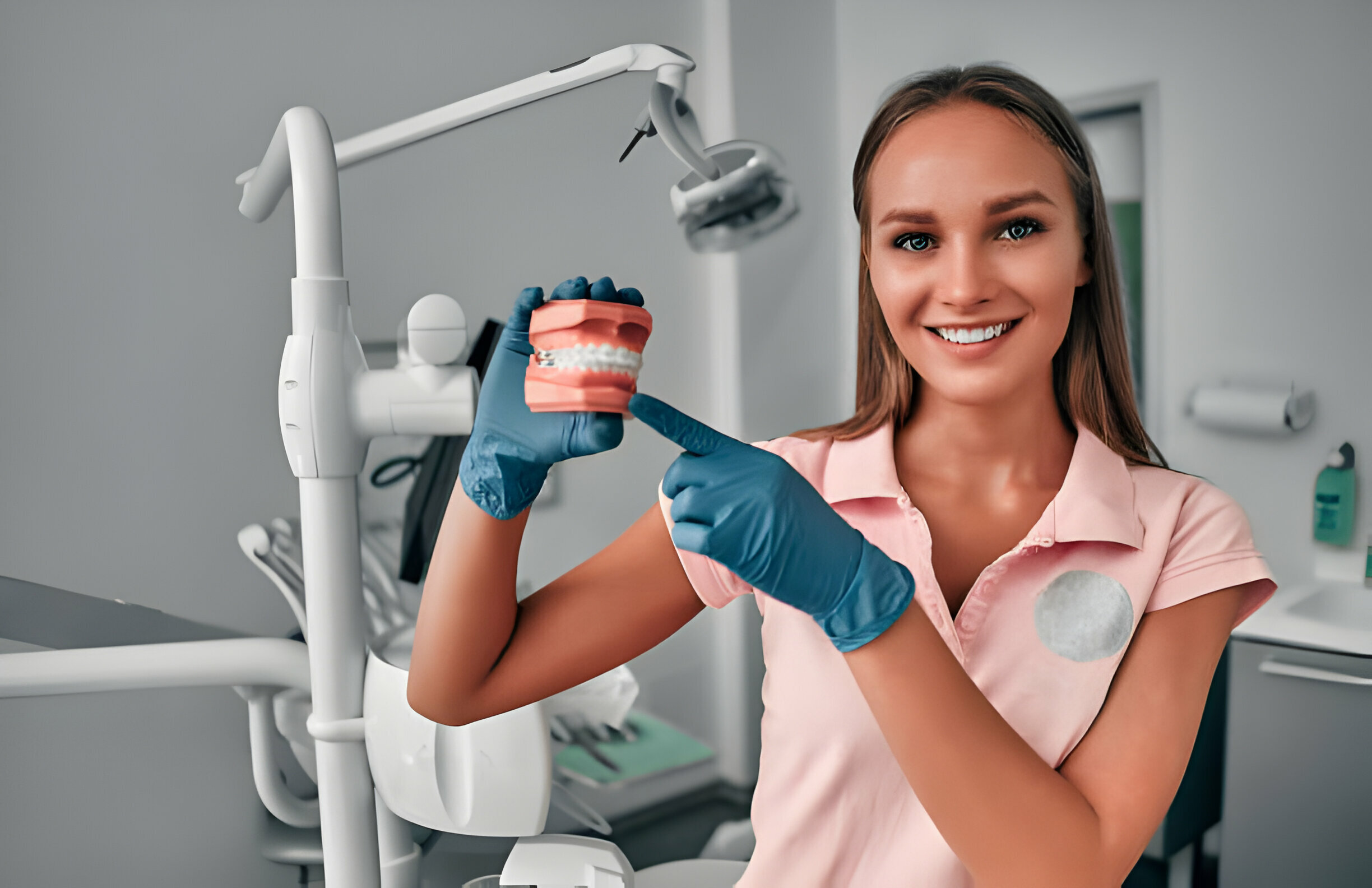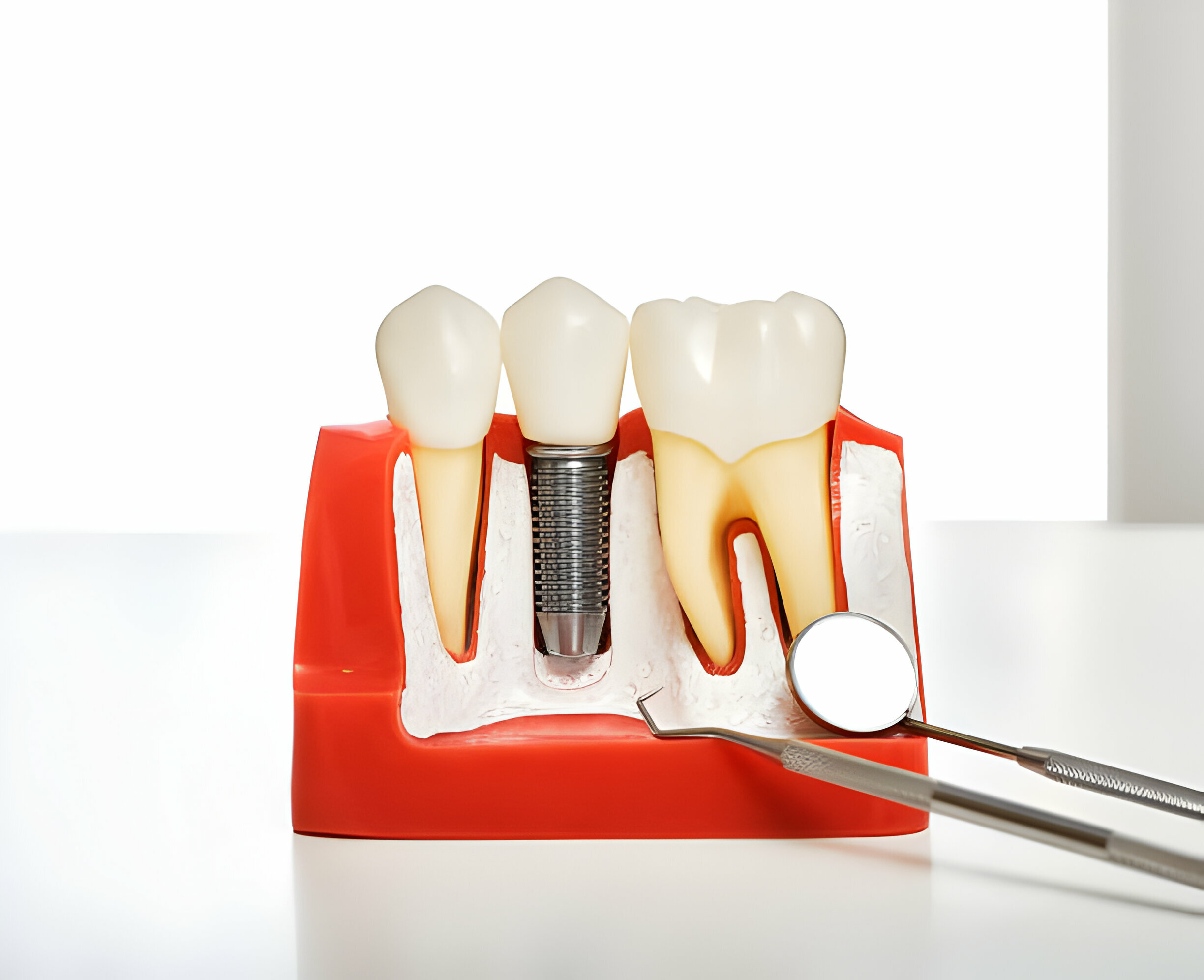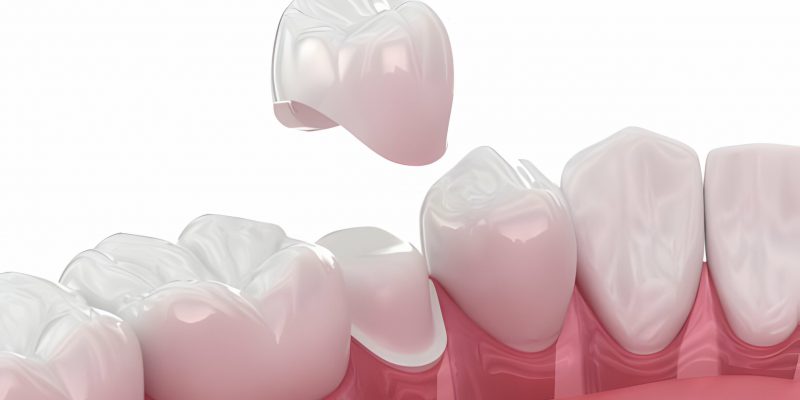Summary:
Dental crowns, often known as caps, are adaptable dental restorations that enclose injured or compromised teeth, restoring their shape, size, strength, and look. They play an essential function in maintaining oral health and improving appearance.

If you’re considering obtaining a dental crown, it’s essential to understand the several varieties available, each with its benefits and drawbacks. Sadly, not many resources give you details about crowns in dentistry.
Therefore, we’ve come up with our research on the most frequently confused aspects of the crown treatment. In the following sections, we understand more about:
- What is a Dental Crown?
- When is a Dental Crown Necessary?
- Types of Crowns Your Oral Expert May Suggest
- Choosing the Right Type of Oral Cap
So continue reading as we learn more about the appliance in the following sections.
Dental Crowns – A Great Solution to Smile Dentistry
Dental crowns are a frequent oral repair surgery that covers a broken tooth. They enhance the look of a tooth and restore its functioning and strength. These appliances can last for up to five years (when cared for properly). Oral caps come in a variety of materials, each with its own set of benefits and drawbacks.
Crowns or caps are frequently used for:
- Protect a weakened tooth from additional injury.
- Repair a fractured or worn-down tooth.
- Cover and support a tooth with an extensive filling.
- Hold a dental bridge in place.
- Cover any crooked or stained teeth.
- Cover the dental implant.
They fully enclose the visible section of the tooth above the gum line, reshaping, strengthening, and improving its look.
What are Dental Crowns Made Of?
A permanent crown tooth generally comprises:
- Ceramics or porcelain, such as zirconia and lithium disilicate
- Metal-ceramic or PFM (porcelain fused with a metallic framework)
- Composite resins are similar to those used in fillings.
- Metals like gold or silver alloys, titanium, and stainless steel
Your demands, preferences, and availability will determine the material your dentist employs. Your dentist may also have a preference for specific materials.
High-performance polymers like PEEK and PEKK have recently been developed in dentistry and might be a viable alternative to zirconia.
Once you connect with your Summerville, SC, dentist, they will walk you through different aspects of the treatment, helping you decide what’s best for your current oral health.
When is a Dental Crown Necessary?

There are various reasons why oral crown options are necessary for many individuals. Here’s an insight into some of the most relevant instances:
- Protection: If a tooth is weak or damaged due to decay, fracture, or significant dental operations, it may need a crown to prevent future deterioration. Crowns operate as a protective barrier, protecting the underlying tooth structure from further deterioration.
- Restoration of Functionality: A tooth that is severely worn down, damaged, or malformed may not function normally. An oral cap restores the tooth’s shape, size, and strength, allowing it to work usually, such as chewing and biting.
- Cosmetic Enhancement: Caps can enhance the look of a tooth by concealing stains, discoloration, or abnormalities. They can also be used to improve the overall appearance of the grin, making it more uniform and natural-looking.
- Support for Dental Prosthetics: Caps support prosthetics by anchoring dental bridges or covering implants. Dentist crowns also offer stability and support to various prosthetic devices, ensuring appropriate operation and lifetime.
Types of Crowns Your Oral Expert May Suggest
1. Porcelain:
Porcelain crowns in dentistry are among the most common dental crowns due to their natural look and durability. They are designed to replicate the color, clarity, and feel of genuine teeth, making them nearly invisible from the surrounding teeth.
Porcelain crowns are an excellent alternative for front teeth and other prominent mouthparts. They are biocompatible and will not cause allergic responses.
2. Metal:
Metal crowns, often known as gold or alloy dentist crowns, are composed of metal alloys, such as gold, platinum, or palladium. These crowning for teeth are highly durable and require little tooth structure removal, making them ideal for molars and teeth subjected to heavy chewing stresses.
While metal crown teeth are highly robust and durable, their metallic look makes them unsuitable for visible regions of the mouth.
3. Porcelain-Fused-to-Metal (PFM):
PFM crowns are a hybrid solution that combines metal strength with porcelain beauty. These caps include a metal foundation for stability and longevity, with a veneer of porcelain bonded to the outside surface to replicate the appearance of natural teeth.
PFM caps in dentistry are adaptable and may be applied to front and rear teeth. However, they may be more susceptible to chipping or breaking than all-porcelain crowns.
4. All-ceramic Crowns:
All ceramic caps are similar to porcelain crowns, except they are built entirely of ceramic material, with no metal underpinning. These caps provide excellent aesthetics, strength, and biocompatibility.
They are an excellent option for people with metal allergies or needing a metal-free repair. All ceramic crowns are perfect for both front and back teeth and give a natural appearance.
5. Composite Resin:
Dentists bond a tooth-colored composite material to the tooth to create composite resin crowns. Dentists frequently use these caps as less expensive substitutes for other types of caps or as interim restorations.
Although composite resin options are less lasting than other choices and may need to be replaced more frequently, they can produce adequate results in some cases.
6. Zirconia:
Zirconia crowns are a type of ceramic crown that is noted for its high strength and longevity. They are constructed of zirconium oxide, a biocompatible substance extremely resistant to chipping, breaking, and wear.
Zirconia capping teeth have outstanding aesthetics and can be used on front and back teeth. They are appropriate for people who need a powerful, long-lasting repair.

Choosing the Right Type of Oral Cap
The type of crown you choose is determined by several criteria, including the tooth’s location, the level of damage, aesthetic preferences, and budget. Your dentist will weigh these variables and recommend the best choice for your requirements.
- Front teeth: Porcelain, all ceramic, or porcelain-fused-to-metal caps provide the finest cosmetic results.
- For back teeth: Zirconia, metal, or porcelain-fused-to-metal crowns are advised for back teeth owing to their strength and longevity.
All-ceramic or zirconia crowns are the best options if you have metal allergies. Remember, all dental caps for teeth are different and serve individuals depending on their unique oral condition.
Takeaway
- Dental caps are flexible restorations that encase damaged or compromised teeth.
- These appliances return your jaw to its original size, shape, strength, and appearance.
- Your dentist’s choice of material will depend on your needs and tastes and what is readily available.
- Visit our experts at Cane Bay Family Dentistry to learn more about different types of crowns today!

